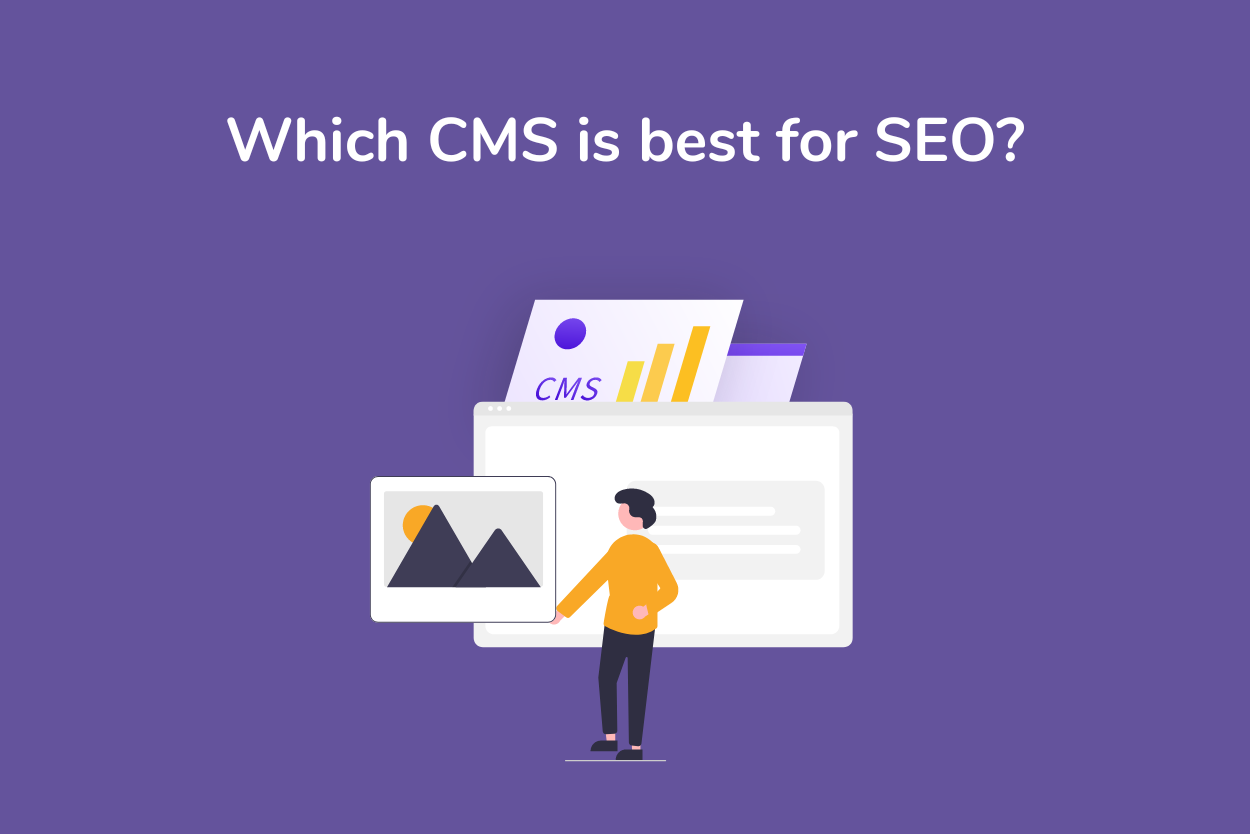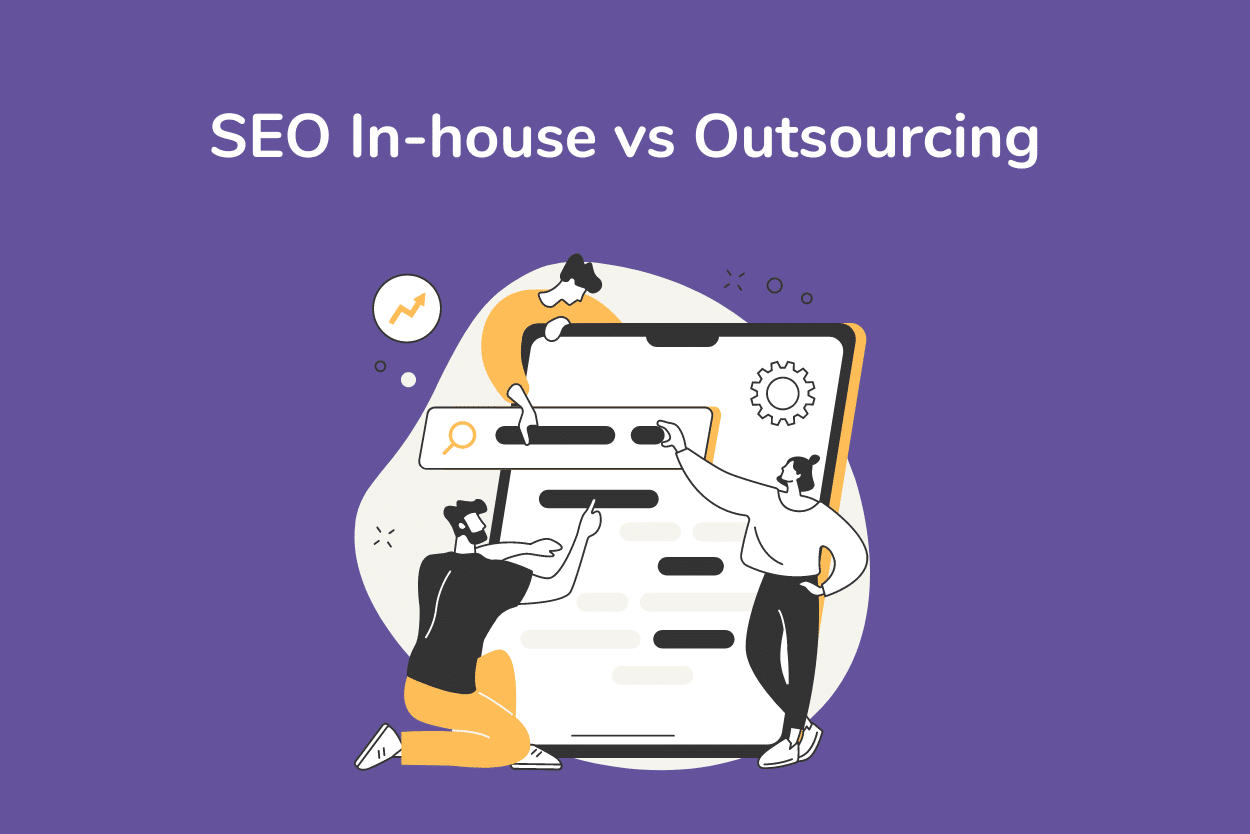SEO is one of the core aspects of a SaaS marketing strategy. In such a dynamic field, SEO tools are what decide how agile most companies will be under any competition.
This guide aims to go through the best and latest of the SaaS SEO tools available, categorized by their use case, with insights on how to go about selecting the right tools for each unique business. We will also tackle some of the very common concerns and issues that most people have while using SaaS SEO tools.
Best SaaS SEO Tools in 2025
| Tool Name | Description | Starting Price | Free Version |
| Ahrefs | Comprehensive SEO tool | $99/month | No |
| Ubersuggest | Keyword suggestions and SEO analysis | $29/month | Yes |
| SEMrush | Site audits and competitor analysis | $119.95/month | No |
| Yoast SEO | WordPress content optimization | $89/year | Yes |
| Screaming Frog | Technical SEO issues identification | $209/year | Yes (limited) |
| Google Search Console | Site performance and indexing | Free | Free |
Google Analytics | Detailed website traffic and behavior analysis | Free | Free |
| BuzzSumo | Content performance analysis | $99/month | Yes (limited) |
| Clearscope | SEO-friendly content creation | $170/month | No |
| SpyFu | Competitor keyword and PPC tracking | $39/month | No (trial) |
| Serpstat | Keyword research and competitor insights | $69/month | Yes (limited) |
| ContactOut | Provides accurate email addresses and LinkedIn profiles | $79/month | Yes (limited) |
Keyword Research Tools
1. Ahrefs
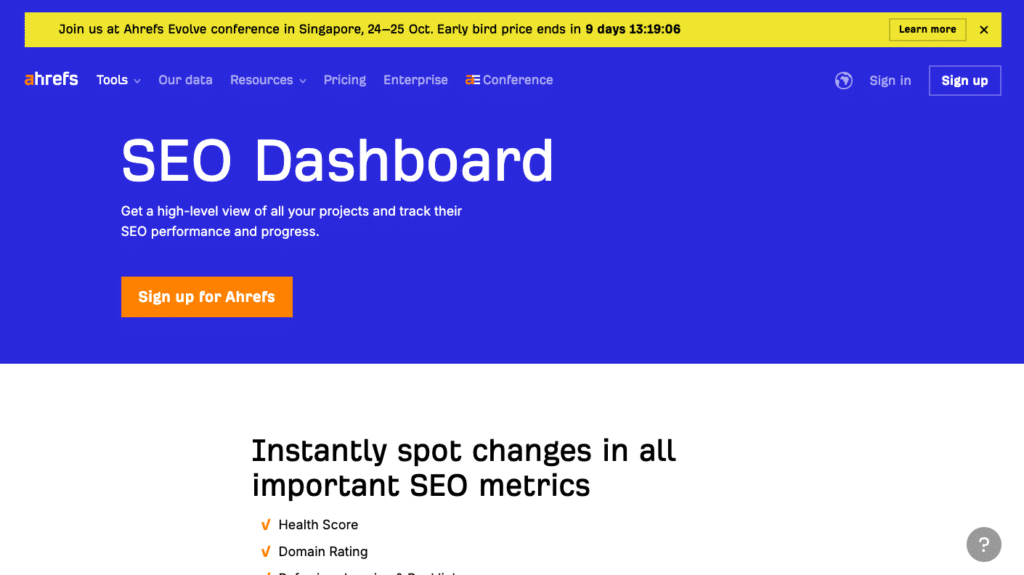
Description: Comprehensive tool for keyword research, backlink analysis, and competitor analysis.
Starting Price: $129/month
Free Version: No, but offers a trial.
Why it’s useful for SaaS SEO: Ahrefs is known for its robust backlink analysis, keyword explorer, and site audit features. It helps SaaS companies identify high-potential keywords, monitor backlinks, and understand their competitors’ strategies.
2. Ubersuggest
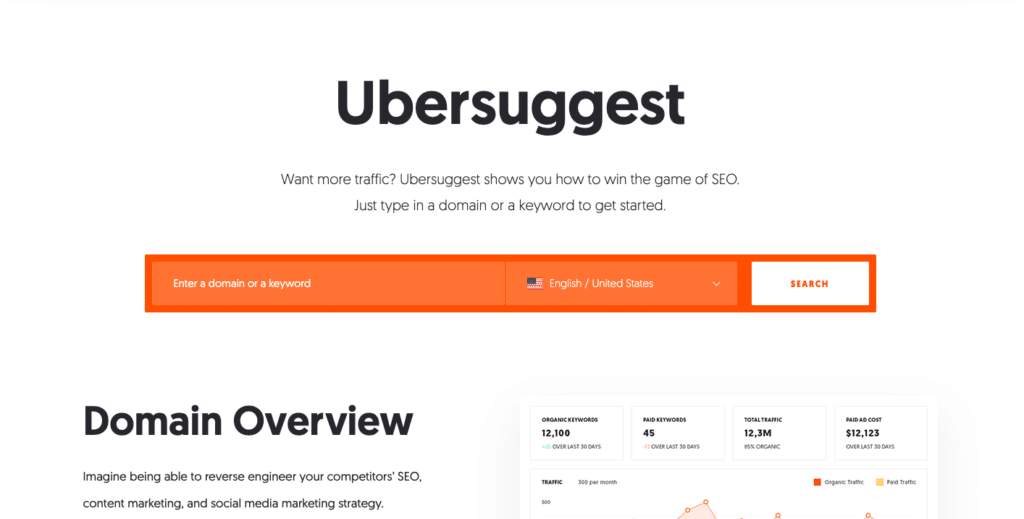
Description: Provides keyword suggestions, search volume data, and SEO analysis.
Starting Price: $12/month
Free Version: Yes, with limitations.
Why it’s useful for SaaS SEO: Ubersuggest offers keyword suggestions, content ideas, and competitive analysis, making it a versatile tool for SaaS businesses looking to optimize their content and identify new keyword opportunities.
On-Page SEO Tools
1. SEMrush
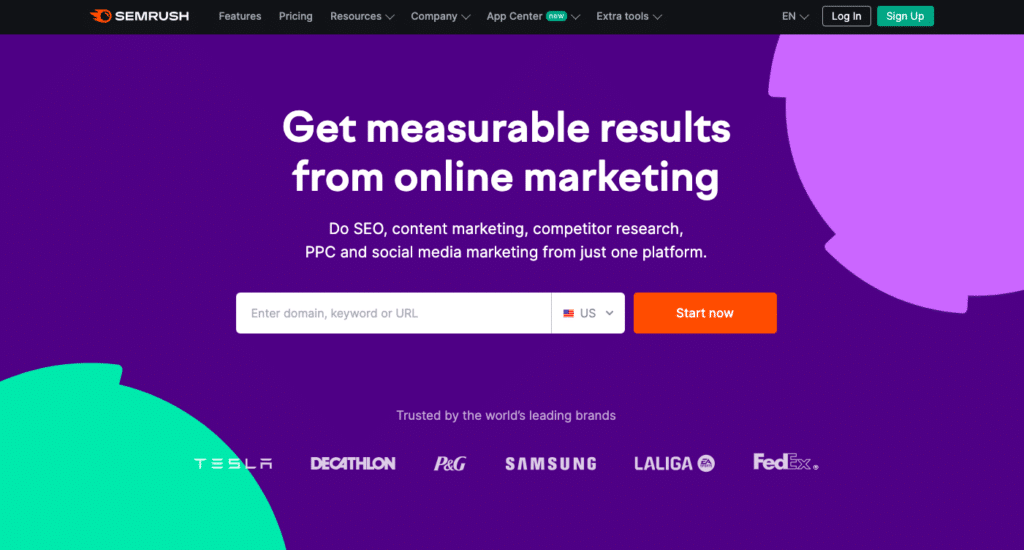
Description: Offers site audits, on-page SEO suggestions, and competitor analysis.
Starting Price: $139.95/month
Free Version: No, but offers a trial.
Why it’s useful for SaaS SEO: SEMrush provides comprehensive tools for on-page SEO, keyword tracking, and competitor analysis. It helps SaaS companies optimize their website content, track keyword rankings, and gain insights into competitors’ strategies.
2. Yoast SEO
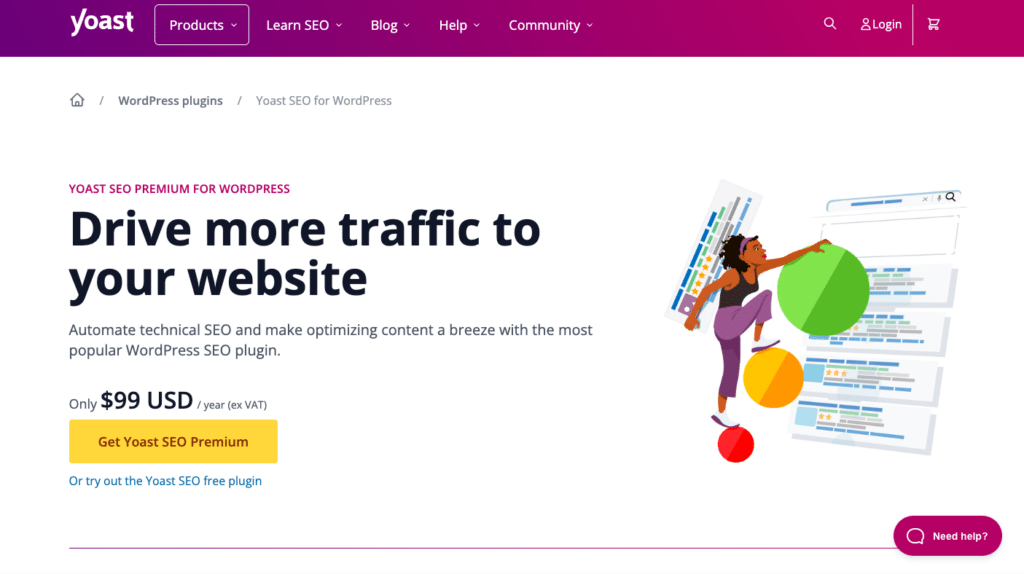
Description: Plugin for optimizing content directly within WordPress.
Starting Price: $99/year
Free Version: Yes
Why it’s useful for SaaS SEO: Yoast SEO is a powerful tool for optimizing content within WordPress. It offers real-time content analysis, readability checks, and suggestions for improving on-page SEO, making it easier for SaaS companies to create SEO-friendly content.
Technical SEO Tools
1. Screaming Frog
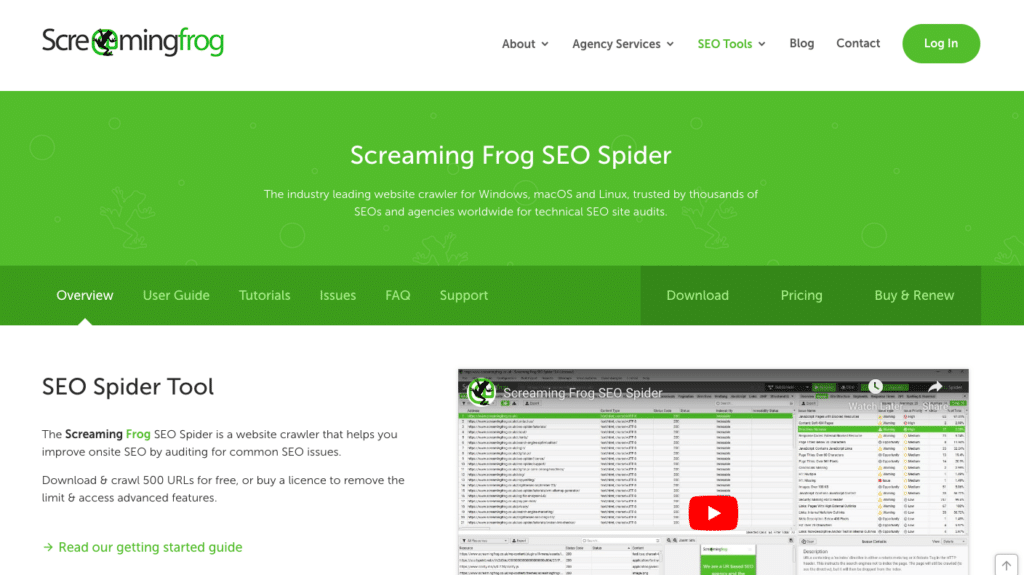
Description: Website crawler for identifying technical SEO issues.
Starting Price: $259/year
Free Version: Yes, limited to 500 URLs.
Why it’s useful for SaaS SEO: Screaming Frog is essential for conducting technical SEO audits. It helps identify issues such as broken links, duplicate content, and missing metadata, ensuring that SaaS websites are optimized for search engines.
2. Google Search Console (GSC)
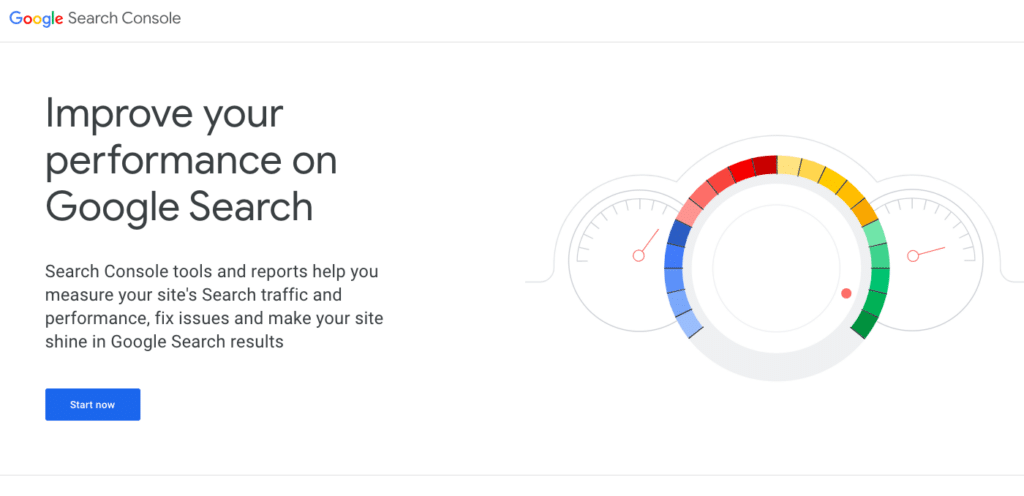
Description: Free tool for monitoring site performance, indexing, and SEO health.
Starting Price: Free
Why it’s useful for SaaS SEO: GSC lets you monitor how your website appears on Google search results; you can see what queries your web pages appear for and how often people click through to your site. This info, combined with search volume data, makes it the backbone of most SEOs toolkits. It also alerts you when Google encounters issues with your site, helping you maintain a healthy and high-performing website.
Analytics Tools
1. Google Analytics
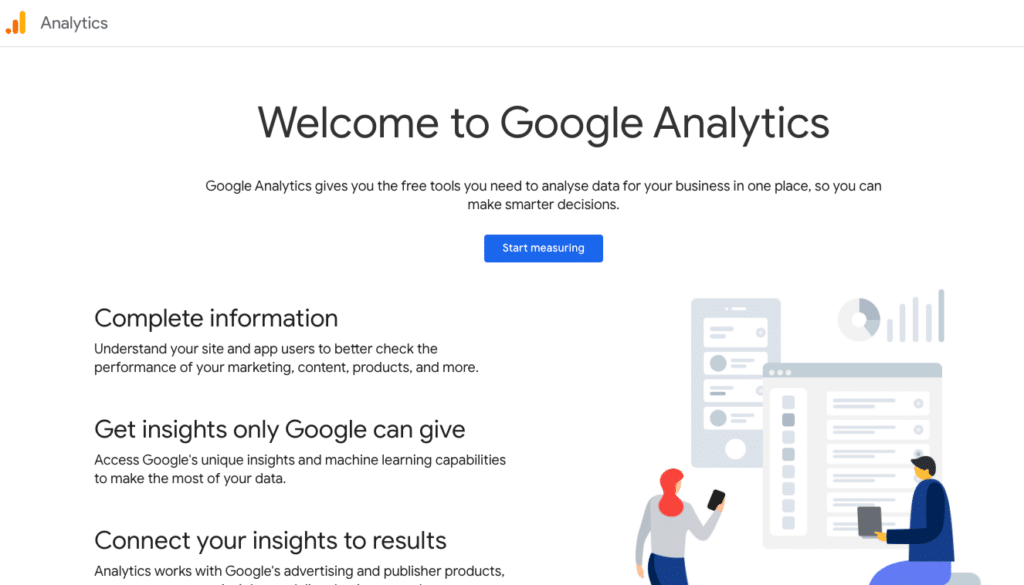
Description: Provides detailed insights into website traffic, user behavior, and conversion tracking.
Starting Price: Free
Why it’s useful for SaaS SEO: Google Analytics is a cornerstone of any SEO strategy, offering in-depth data on how users interact with your website. It allows you to track visitor demographics, behavior flow, and conversion rates, helping you understand the effectiveness of your SEO efforts and make data-driven decisions. By integrating Google Analytics with Google Search Console, you can gain a comprehensive view of your website’s performance and identify opportunities for improvement.
Content Optimization Tools
1. BuzzSumo
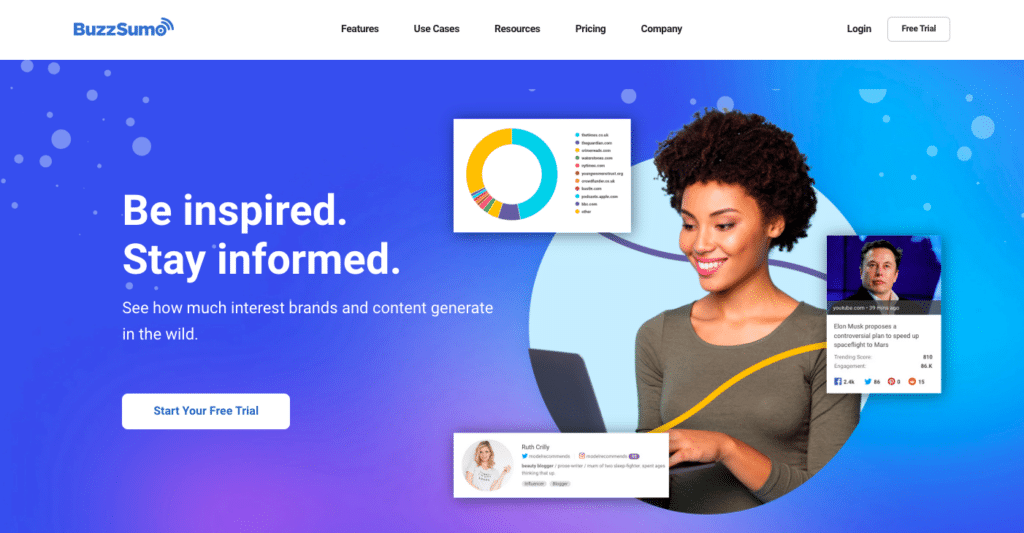
Description: Analyzes content performance and helps generate content ideas.
Starting Price: $199/month
Free Version: Yes, with limitations.
Why it’s useful for SaaS SEO: BuzzSumo helps SaaS marketers understand what content is performing well in their industry, generate new content ideas, and track social engagement metrics, ensuring their content strategy is data-driven and effective.
2. Clearscope
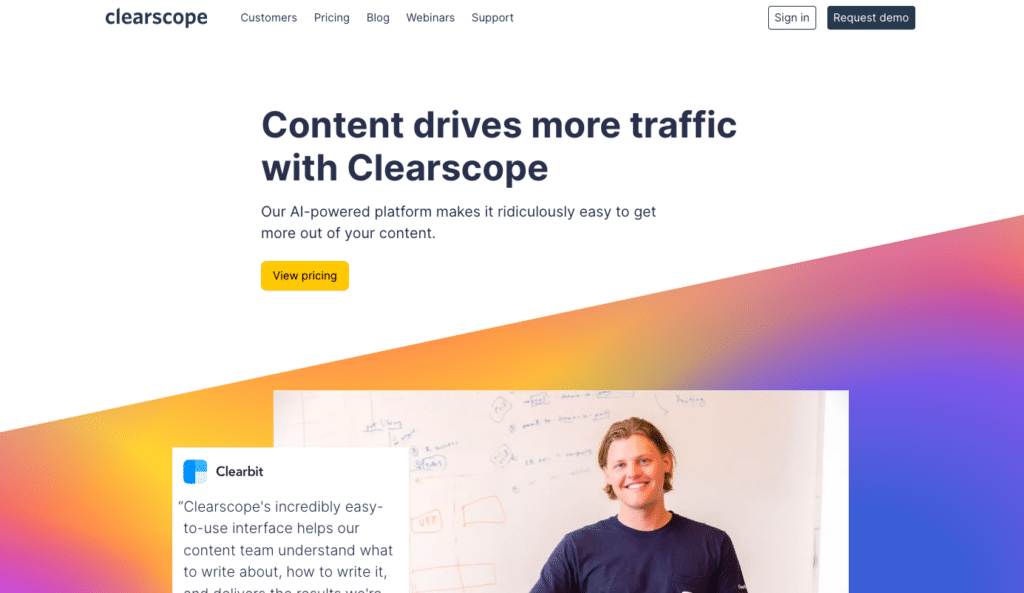
Description: Assists in creating SEO-friendly content by analyzing top-performing content.
Starting Price: $189/month
Free Version: No
Why it’s useful for SaaS SEO: Clearscope provides recommendations for improving content based on competitive analysis and keyword relevance, helping SaaS companies create high-quality, optimized content that ranks well in search engines.
Competitor Analysis Tools
1. SpyFu
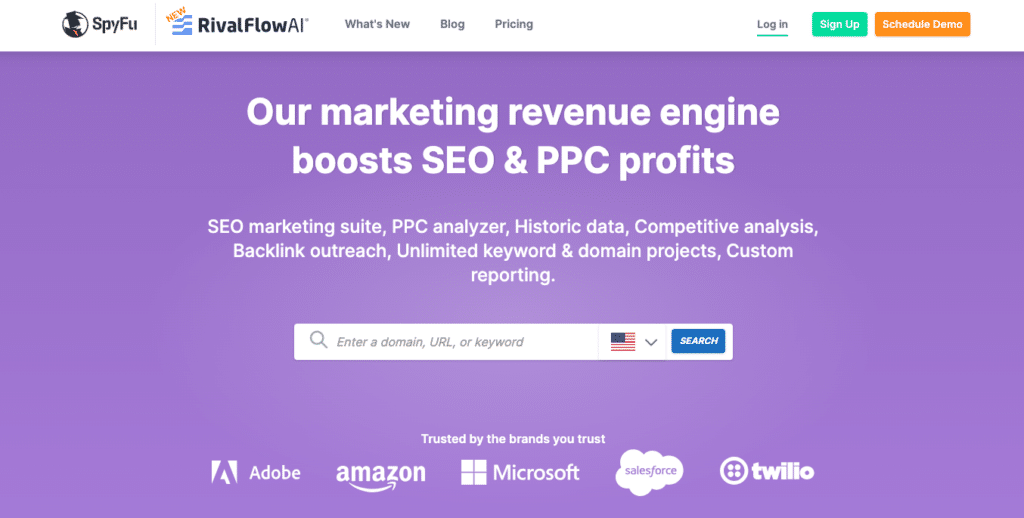
Description: Tracks competitors’ keywords and PPC strategies.
Starting Price: $9/month
Free Version: No, but offers a trial.
Why it’s useful for SaaS SEO: SpyFu allows SaaS businesses to analyze their competitors’ SEO and PPC campaigns, uncovering valuable insights into keyword strategies and competitive dynamics.
2. Serpstat
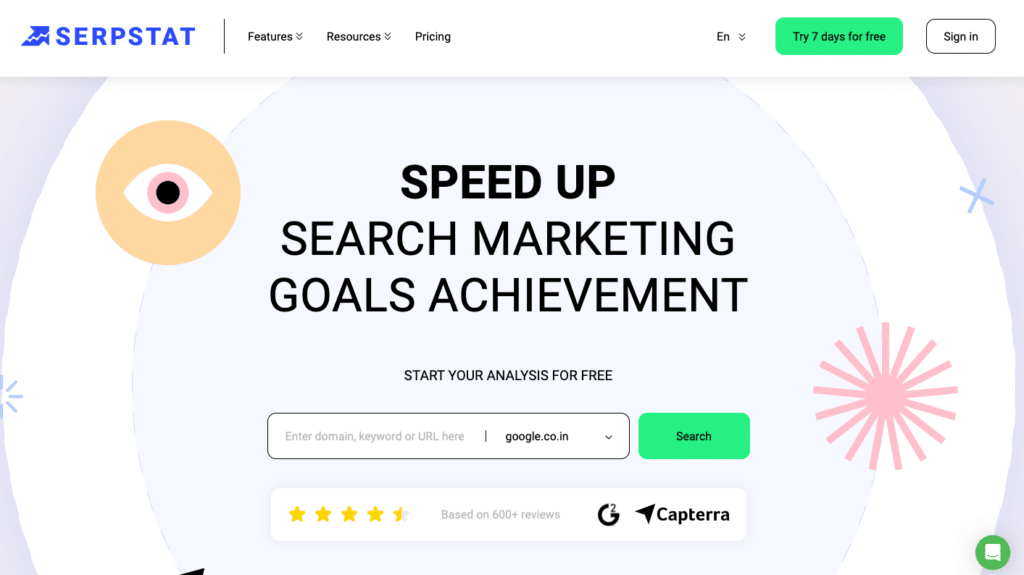
Description: All-in-one tool for keyword research, backlink analysis, and competitor insights.
Starting Price: $59/month
Free Version: Yes, with limitations.
Why it’s useful for SaaS SEO: Serpstat offers a comprehensive suite of SEO tools, including keyword analysis, backlink tracking, and site audits, making it a versatile choice for SaaS companies looking to enhance their SEO efforts.
Email Finder & Outreach Tools
1. ContactOut
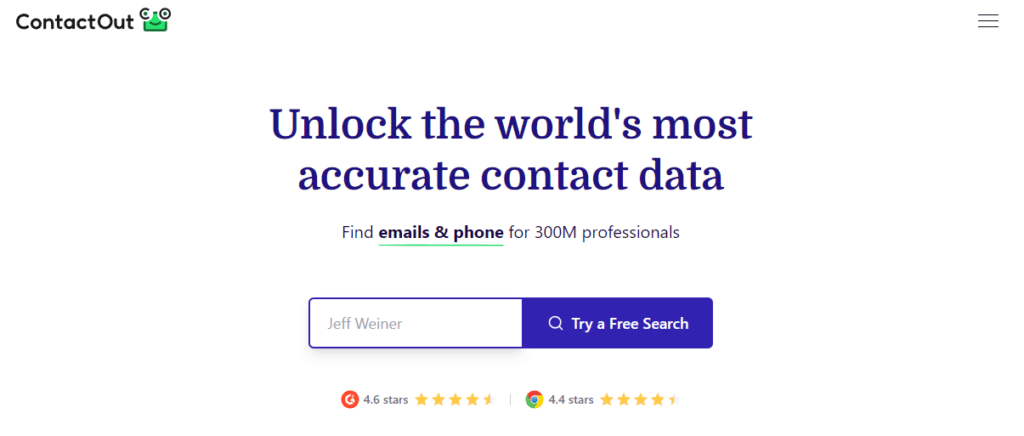
Description: A robust contact-finding tool that provides accurate email addresses and LinkedIn profiles to help businesses connect with key decision-makers.
Starting Price: Premium plans start at $79/month.
Free Version: Yes, with limited searches.
Why it’s useful for SaaS SEO: ContactOut helps SaaS companies boost SEO by simplifying outreach for link building, partnerships, and collaborations. With verified contacts, it makes connecting easier and drives organic growth.
Benefits of SEO Tools for Your SaaS Business
SEO tools are the ultimate resort for every SaaS business that needs to level up its online presence, drive traffic, and guarantee both leads and conversions. Some of the major benefits of the SEO tool for a SaaS business are as
1. Improved Keyword Research
Be it the SEO tools Ahrefs, SEMrush, or Ubersuggest, what they do is assist you in finding these high-promise keywords that relate to your business. They give a view of search volume, keyword difficulty, and competitive analysis that helps you target keywords through which your website can drive a ton of traffic.
2. Enhanced On-Page SEO
Additionally, Yoast SEO and Clearscope individually give tips about how to create optimized pages on the individual website. In their analysis, they ensure proper page optimization for good search engine results through their keyword usage, terms and good general usage, page readability, and many more.
3. Comprehensive Competitor Analysis
Tools such as SpyFu and Serpstat provide opportunities to analyze your competitors’ SEO strategies. Combine the idea: the knowledge of which keywords they target, which backlinks they have, and generally how they perform, you adapt all of this to a better strategy than theirs.
4. Technical SEO Audits
Technical SEO tools, like Screaming Frog and Google Search Console, help identify and fix issues that may impair the functionality of your website in search results. They can detect everything from broken links and duplicate content to indexing problems and other technical issues. Those are confirmed to make sure your site is in tip-top condition for search engines.
5. In-Depth Analytics
Google Analytics deepens your view of website traffic and activity features with conversion rates. That way, you know precisely how visitors interact with your site to assist in making data-driven decisions on improving their experiences and raising conversions.
6. Content Optimization
Use content optimization tools like BuzzSumo or Answer The Public to develop content that will really troubleshoot and resonate with the target audience. These tools show you hot content topics, questions by other users, and social engagement, among many other details. Go and create this content, which will drive engagement and traffic.
7. Better Backlink Management
But one way or another, multiple influential options on tools for backlink analysis form part of present-day Ahrefs and SEMrush: high-quality opportunities for backlinks, tracking powerful backlink profiles, and spying on competitors’ backlinks.
8. Increased Efficiency
Such tools automate most works that are often repetitive while carrying out SEO. This thereby makes it time- and resource-saving; hence, your team will focus more acutely on other strategic initiatives and creative tasks toward overall higher productivity.
9. Enhanced Reporting and Monitoring
SEO tools also have advanced reporting capacities that will monitor the progress of campaigns. You can then share them with stakeholders in your campaigns to show a return on investment from the efforts you expend on SEO campaigns.
10. Real-Time Alerts
You get the benefit of having things going wrong with your site reported, in real time, for example through Google Search Console, in actual indexation problems or security issues. That way, you can deal with any problems that do arise quite swiftly, before they have a negative impact on your search rankings.
How to Choose the Right SEO Tool for Your SaaS Business
A proper SEO tool often varies with the following factors:
- Business Goals: You’ll have to understand what a business is trying to achieve using SEO: keyword ranking improvement, competitor checking, or elements such as optimizing content; you make sure those features agree with your goal.
- Budget: Budget comes into question since some probably have potent free versions or trials, while others are considered expensive and require a great investment.
- Ease of Use: Assess the user interface and how easy it is to use. The tool is supposed to make work easier for you rather than complicating it.
- Integration Capabilities: Test whether the solution aligns with your existing systems and tools, such as Google Analytics and your CMS.
- Customer Support: Good customer support can be a real lifesaver in dealing with complex tools.
- Reviews and Testimonials: It’s great to get user reviews on other SaaS companies, as firsthand experience can truly capture the real value and dependability of the instrument.
Conclusion
Some of the SEO tools you will want to include in your SaaS marketing strategy are going to be Ahrefs, SEMrush, Google Analytics, and Google Search Console to get a broad view over keyword research, on-page, and technical SEO; many, many competitors in competitor analysis; and content optimization. This will synchronize the right approach at the correct time for increasing opportunities in SaaS business. Such tools enable the organization to obtain a better place in the search result so that you have the ability to drive real leads to the site.
FAQ
What are SaaS SEO tools?
SaaS SEO tools refer to software that aids in maximizing the visibility of search engines for businesses that operate SaaS. It mostly includes keyword research, on-page SEO, technical SEO, content optimization, and competitor analysis.
Why are SEO tools important for SaaS companies?
Use of SEO tools helps the SaaS company to achieve visibility in search engines, get organic traffic, and learn competitors’ strategies. This normally translates into higher website traffic, conversion rates, and more revenue.
Are free SEO tools effective?
That’s right. Free SEO tools are effective for those big enterprises with tight budgets in this domain. The downside is that many of them generally have limitations in terms of features and data visibility. In general, paid tools will offer in-depth insights and advanced functionalities.
How often should I use SEO tools?
You are technically never done with SEO. Using a search engine optimization tool on a regular basis means conducting regular checks on the performance of your website and optimizing it. Depending on the tool’s capabilities and what is desired, the schedule can be daily, weekly, or monthly checks.
SaaS companies can leverage the potential of SEO by making good and correct use of these tools, and no feature should be overlooked.


